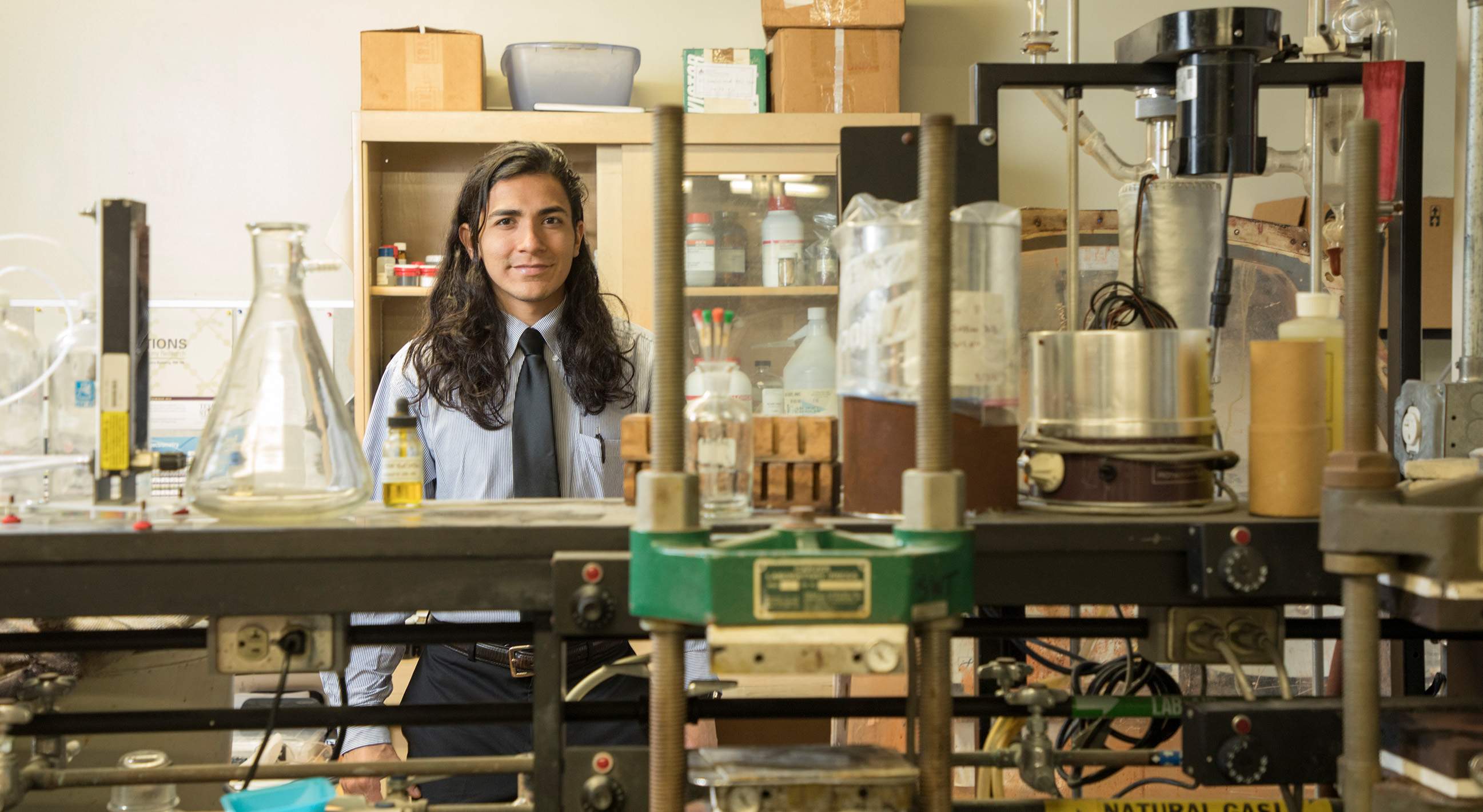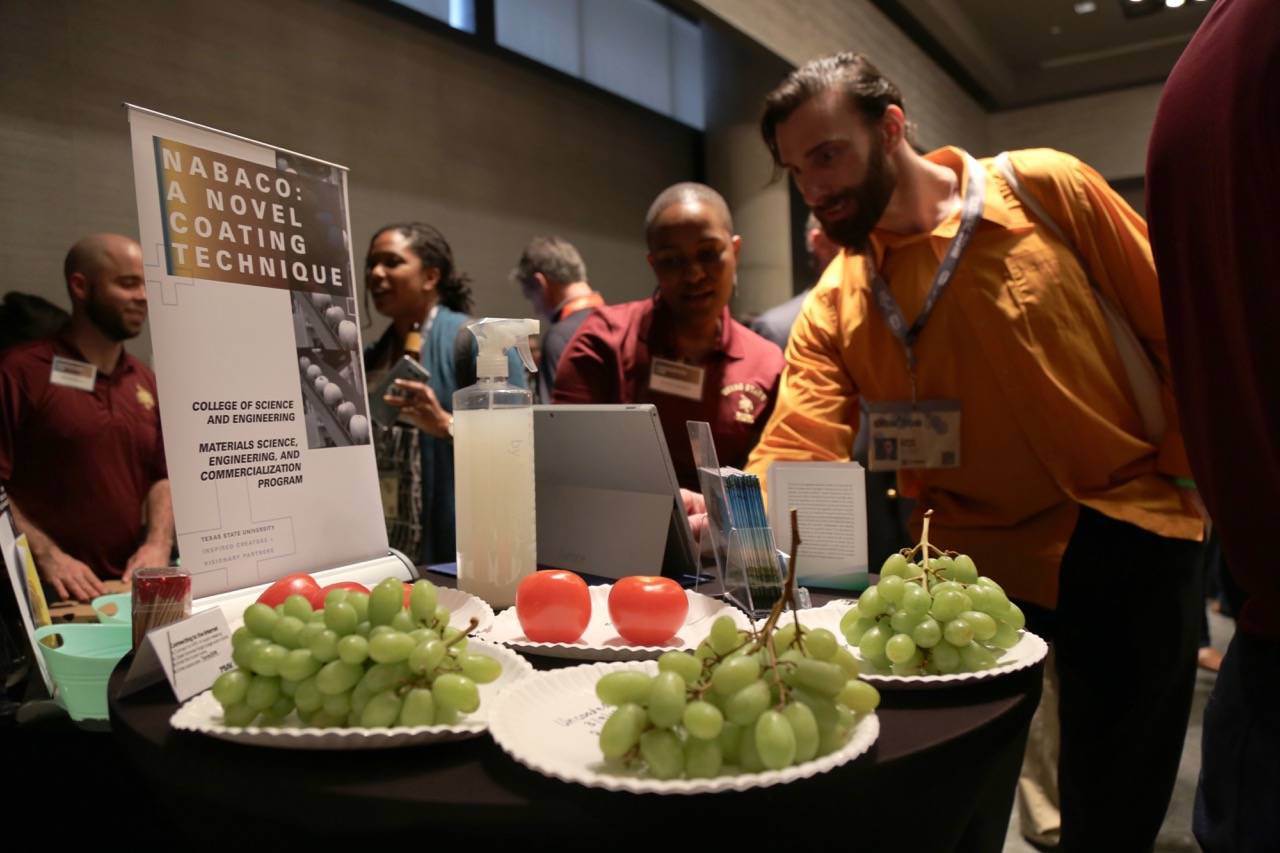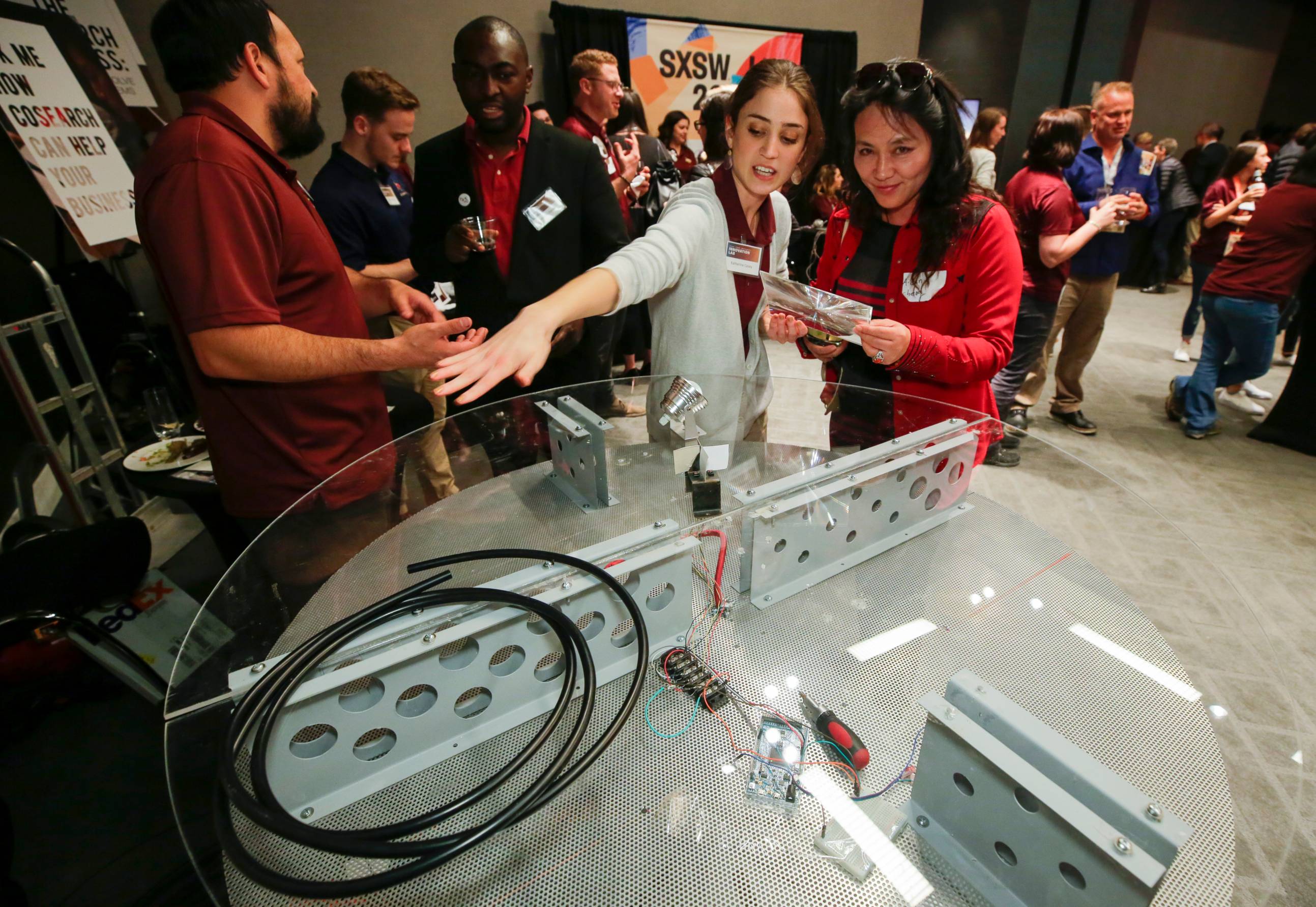Texas State students compete for $50,000 grand prize in Dubai
Julie Cooper | January 24, 2019

Update 2/7/19:
Texas State’s team NABACO won the Khatib and Alami Prize of $8,000, while the Kosmic Energy Team brought home the Khatib and Alami Best Exhibit prize of $4,000.
Dartmouth College’s Neutroelectric LLC won the Chancellor’s Award of $50,000, and the first runner up prize of $25,000 went to HEARTSTRINGS from the KTH Royal Institute of Technology, Sweden.
________________________________________________________________
Two Texas State University teams are among 16 from the U.S. earning the chance to compete in an international business plan competition February 3-5 in Dubai.
The New Venture Challenge (NVC) is sponsored by the American University of Sharjah. Billed as “the most prestigious start-up competition in the region,” 255 teams from around the world applied for a spot in the inaugural event and will vie for a $50,000 grand prize.
Accompanying the Texas State teams to Dubai is Dr. Gary Beall, associate director of the Materials Science, Engineering and Commercialization Program (MSEC). Ricardo Ramirez and Alex McGraw will represent Kosmik Energy team, while Dr. Michael Opoku and Carlos Corona are team NABACO. Each team consists of a graduate student and an undergraduate.
Texas State is the only U.S. university with two teams qualifying for the NVC competition. “I would attribute it largely to the MSEC program preparations that the students go through. The training that we give them, and the skills set, is very applicable to producing high-quality business plans,” Beall said. Each MSEC student is required to put together a business plan related to their studies.
NABACO has developed a coating, currently awaiting FDA approval, that is applied on fruits and vegetables to triple the shelf life of produce. Kosmik Energy has created a robotic solar collector that follows the sun with its primary use to be an energy source for indoor or vertical farming.
“The best ideas have a tendency to rise to the top,” Beall said. In preparing these teams for competition, he tells students they can compete with anybody in the world. “They don’t realize it until their first round in the competition, but we do just as well as MIT or Stanford.”
In the business plan competition, student teams present a formal proposal to a panel of judges to resemble a real-world process of launching a business. There is also a one-minute “elevator pitch” presentation without the benefit of using any visual aids.
“Another key to our success is that our teams are multi-disciplinary,” Beall said. “If you compare Texas State to many other competing universities, they typically do not have representatives from science, business, and fine arts.”
In addition to the top prize of $50,000, there are additional cash prizes. Every team is also guaranteed $4,000 toward their travel expenses and provided food and lodging at the event.


Share this article
For more information, contact University Communications:Jayme Blaschke, 512-245-2555 Sandy Pantlik, 512-245-2922 |